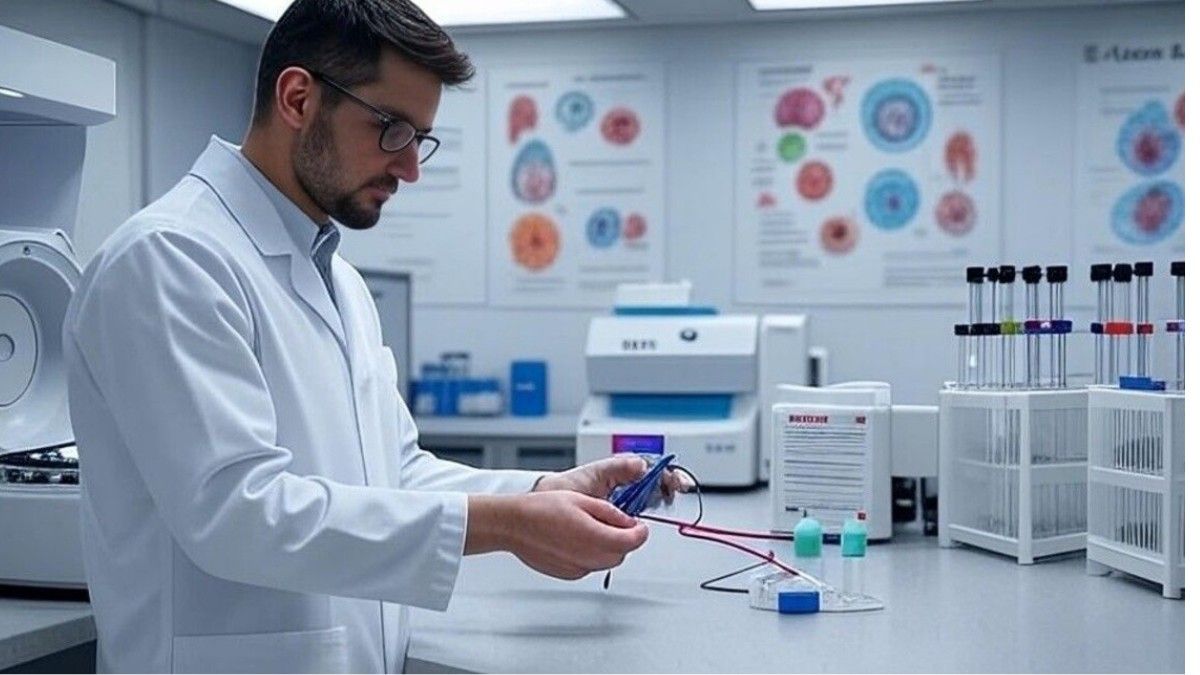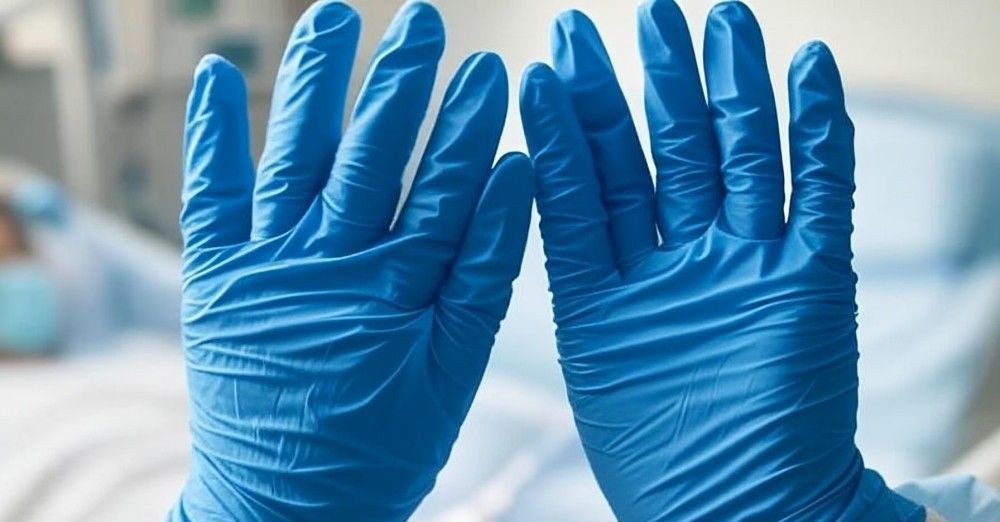
When the result of lactate dehydrogenase (LDH) comes in any report, then the person gets a little tensed or becomes curious – be it the patient or the doctor. LDH test is an important test in diagnostics, which tells the condition of body tissues. In 2025, when medical technology has advanced a lot and it is the time of preventive care, it has become very important to understand LDH test. In this guide, we will explain in detail:
- What is LDH test
- What is its normal range
- Why it is important
- How is the test done
- What is its role in today’s medical field
Everything is simple and understandable for both patients and professionals.
What is LDH Test?
Lactate dehydrogenase (LDH) is an enzyme found in every cell – heart, liver, kidney, muscles, brain, lungs, and blood cells. It converts glucose into energy through the process of glycolysis.
Whenever a cell or tissue is damaged – due to injury, infection, or disease – LDH is released into the blood and its level rises.
An LDH test checks its level in the blood. This test is often done by taking blood in a vacutainer tube and analysed in a laboratory. This test is non-specific – that is, it is used in many conditions such as heart disease, liver problems, anaemia or some cancers.
The LDH test is often done in conjunction with other tests to identify the real problem.
How is the LDH Test Done?
- Sample Collection: Blood is taken from a vein – often by hand – into a vacutainer tube (plain red-top or serum separator tube).
- Sample Processing: The LDH level is measured in units per liter (U/L) using an automated machine in the lab.
- Result Reporting: The result is often obtained in a few hours or a day, depending on the workload and technology of the lab.
In 2025, automation and point-of-care testing will make LDH results even faster and more accurate.
Why is the LDH Test Important?
The LDH test is very valuable because it shows damage to different organs in the body:
- Tissue Damage: An increase in LDH could mean a heart attack, liver problem, muscle injury, or anemia.
- Chronic Conditions Monitoring: For example, lymphoma, leukemia, heart failure – LDH helps determine response to treatment.
- Comprehensive Diagnosis: The LDH test, in conjunction with other tests, gives a complete picture.
For example, a patient with chest pain may have both LDH and troponin tests to determine heart damage. An LDH test is helpful for liver damage in patients with fatigue or jaundice. In 2025, LDH is also being used for personalized treatment – based on the needs of the patient.
Clinical Use of LDH Test
- Cardiology: LDH increases after a heart attack.
- Hepatology: LDH is high in hepatitis, cirrhosis or fatty liver.
- Oncology: LDH is a marker in cancers such as lymphoma or leukemia – for tumor burden or response.
- Hematology: LDH is high in hemolytic anemia because RBCs break down quickly.
- Infections: LDH can increase in infections such as pneumonia, sepsis.
- Muscle Problems: LDH spikes in muscle injury or dystrophy.
What is the Normal Range of LDH?
Normal LDH level is 140 to 280 U/L in adults. It can be slightly higher or lower as per lab results. Below is a chart:
| Group | Normal LDH Range (U/L) | Notes |
|---|---|---|
| Adults | 140 – 280 | Standard range for healthy adults |
| Children | 170 – 450 | Higher due to growth and metabolism |
| Newborns | Up to 750 | Higher due to rapid development |
| Pregnant Women | Slightly higher | Increase due to physiological changes in pregnancy |
Factors affecting LDH levels:
- Age: Naturally higher in children and newborns.
- Lab Variability: Equipment and methods can vary the range.
- Physiological Conditions: Pregnancy, exercise or certain medicines can increase LDH.
- Health Status: Changes may occur due to illness, injury or infection.
If LDH is outside the normal range, it is not necessarily a serious problem. For example, a marathon runner could have an LDH of 400 U/L due to muscle exertion. Low LDH is rare – it may be due to vitamin B12 deficiency or a genetic problem.
Why is LDH Testing Important in 2025?
- Early Detection: Some diseases can be detected even before LDH increases – like heart problem, cancer.
- Chronic Condition Monitoring: Regular LDH tests adjust treatment in patients with heart failure or cancer.
- Technology Advancement: Lab machines and point-of-care tools give fast and accurate results.
- Patient Awareness: By understanding LDH, patients can understand their treatment.
- Digital Integration: In 2025, LDH results will go directly to EHR (Electronic Health Records) – for easy sharing.
Challenges of LDH Testing
- Sample Hemolysis: If the blood sample is handled incorrectly, LDH will show falsely high.
- Interference: Some medicines, alcohol or exercise also temporarily increase LDH.
- Non-Specificity: Does not tell the exact reason for high LDH levels.
- Lab Differences: Results may vary slightly in different labs.
Tips for Accurate LDH Test Results
For Labs & Doctors:
- Use correct tube: Take Red-top or SST tube for serum sample.
- Avoid hemolysis: Handle softly while drawing blood, do not shake the tube.
- Process timely: Heat/light degrades sample – process quickly or keep it in the fridge.
- Labeling accurately: Name, date, time must be written.
- Analyzer Calibration: Check machines regularly, do quality control.
For Patients:
- Preparation: Avoid exercise 1-2 days before, tell doctor about medicines and supplements.
- Do full history: Tell doctor about recent illness, workouts or health issues.
- Understand Results: Explain to doctor what the result means.
- Follow-Up: If the result is abnormal, take the next steps.
Benefits of Understanding LDH to Patient:
- Serious Conditions Ruled Out: If Normal LDH, then there is no need to worry.
- Guide For Next Steps: If LDH is abnormal, further tests should be done timely.
- Informed Decision: After understanding LDH, patient can ask questions to doctor.
- Preventive Health: By understanding LDH, a person can take good care of himself.
Real-Life Impact:
A person visited the clinic complaining of tiredness and slight yellowing of the skin. High LDH was found, so the doctor did a liver function test – hepatitis was found. He got treatment quickly and recovered. Another patient had lymphoma – regular LDH tests helped the doctor adjust chemo. There are many cases where LDH helped in making timely decisions.
LDH Test FAQs
- Why does high LDH occur?
Possible causes included issues such as cardiac problems, liver dysfunction, muscle strain, blood disorders, or malignancies. Sometimes it also temporarily improves with exercise or medicines. - Is low LDH a concern?
Rare. It may be due to vitamin B12 deficiency, malnutrition, or genetic issue. - What should be done before the test?
Avoid excessive exercise 1-2 days before. Inform the doctor if there is any medicine or injury. - In what time will the result be available?
In 2025, often on the same day or within a few hours. - Is there an effect of lifestyle?
Yes, exercise, alcohol or medicines can increase LDH. - Is it for diagnosing cancer?
No. LDH is high in cancer – especially lymphoma – but it is not specific. - Can the result from hemolysis be falsely high?
Absolutely. If the blood is handled wrongly, LDH will show high. - Why is the LDH of a child high?
Due to growth and metabolism. It is normal. - Can the results of the two labs be compared?
There may be a slight difference. Every lab has a different reference range. - Role of LDH in Overall Health Assessment?
LDH is often done along with other tests. The doctor interprets it after looking at the complete picture. - Effect of stress or diet?
Not directly, but malnutrition or alcohol can have a slight effect. - What to do if LDH is abnormal?
Consult a doctor. The doctor will suggest additional tests or changes. Do not panic.
Conclusion
LDH test is a powerful and important test that tells the condition of body tissues. Normal range is 140–280 U/L for adults. In 2025, in the age of advanced technology and preventive care, LDH has become even more useful. If the test is done properly and the result is handled correctly, then this test is helpful for both the patient and the doctor.
Disclaimer: This information is for understanding only. For any medical issue or test result, always consult a qualified doctor or lab professional.




